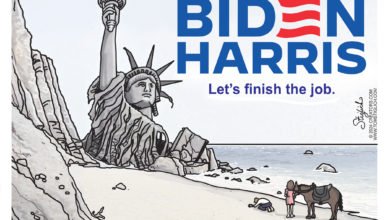Trump’s reliance on daughter for policy calls into question his leadership style
This week, Donald Trump outlined a plan for the federal government to provide six weeks of paid maternity leave for those who do not receive compensation from their employers.
The problem, aside from the implications that this mandate has for the right’s foundational beliefs in free-market economics and the ability of private business owners to set the terms of their relationship with their employees, is Donald Trump is neither the brains nor the face of this policy; his daughter Ivanka is.
The Trump campaign has been open, boastful even, of the degree to which Trump relies on his children for guidance. Not only has Ivanka been prominent in the rollout of the child leave policy, and even credited by her father as pushing him to adopting it, she was also reportedly behind her father’s tolerant position on abortion and federal funding for Planned Parenthood.
The influence that Ivanka wields over her father’s policy stances should be troubling to anyone invested in the idea of presidential power which operates within the confines of the Constitution.
It suggests that, should Trump win the presidency, he would not be the primary force in setting the agenda for his office. His daughter, presumably serving as an advisor or chief of staff, would.
Certainly, all presidents have advisors; the in-depth knowledge on a wide range of political matters exigent to national welfare which a president must have demand that. However, an advisory role is, by implication, largely passive and involves the transmitting of relevant information, not active lobbying for the White House to change its position to fit the opinions of staffers.
Ivanka’s extremely proactive role in her father’s policy is evocative of a chancellorship, more fitting to a Parliamentary system where power is relegated to powerful administrators managed by a chief executive whose role is primarily managerial.
It would probably be in line with Madisonian thinking about how federal power should be wielded to argue that the term “chief executive” implies that there can be multiple so long as one retains a monopoly on power. However, the ongoing debate over Constitutional interpretation has already lead to controversially expansive uses of federal power by activist presidents such as Franklin D. Roosevelt, famously guided by his “brain trust,” and Obama, who brags of his use of a “pen and phone” to accomplish what Congress refuses to fast-track.
Article II, Section 2 of the Constitution dictates that the president, should he require advising, may require opinions from the heads of executive departments in writing. At least the argument can be made that members of the executive branch are subject to democratic oversight pending the approval of their appointment Senate. Advisors are subject to no such oversight.
Influential advisors such as Ivanka seems poised to become, whose purview includes setting policy agendas, are tolerated by executives who strongly rely on individual discretion. This can undoubtedly be a positive in times of crisis. But, it also implies a willingness to work outside the framework of the law whenever the executive’s will is not supported by the majority.
It is doubtful whether that degree of latitude exemplifies a style of leadership that bodes well for a Constitutional republic. Further, there is a question of ethics involved in the role which Ivanka has taken on. Since her father is the one under national scrutiny, should not his ideas be the ones that are being advanced? The election is a referendum on the platforms the candidates advance. Contracting that platform out to advisors seems intellectually dishonest.




